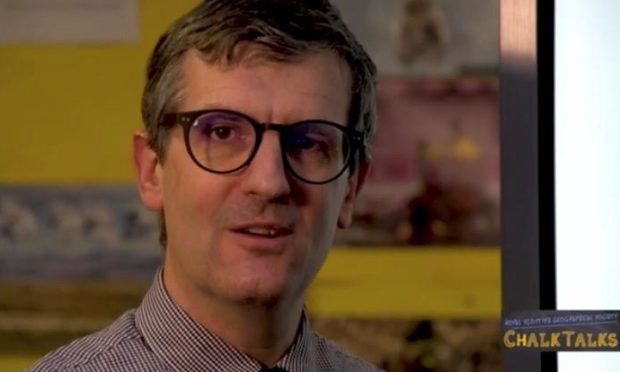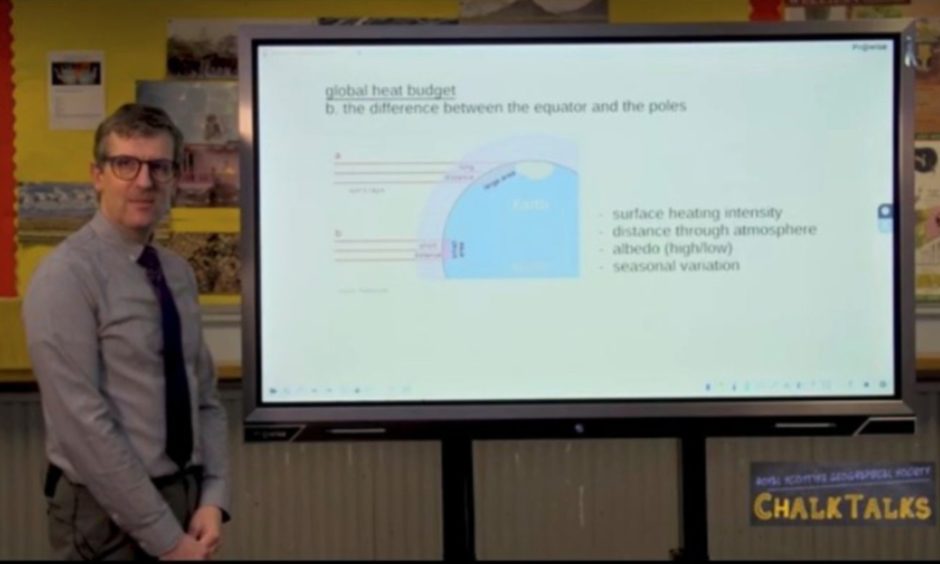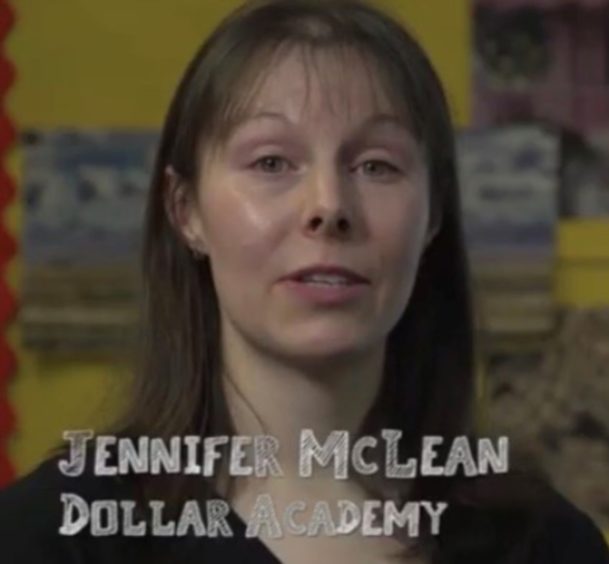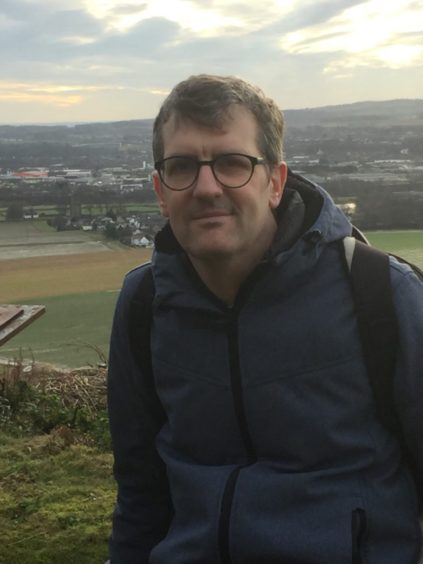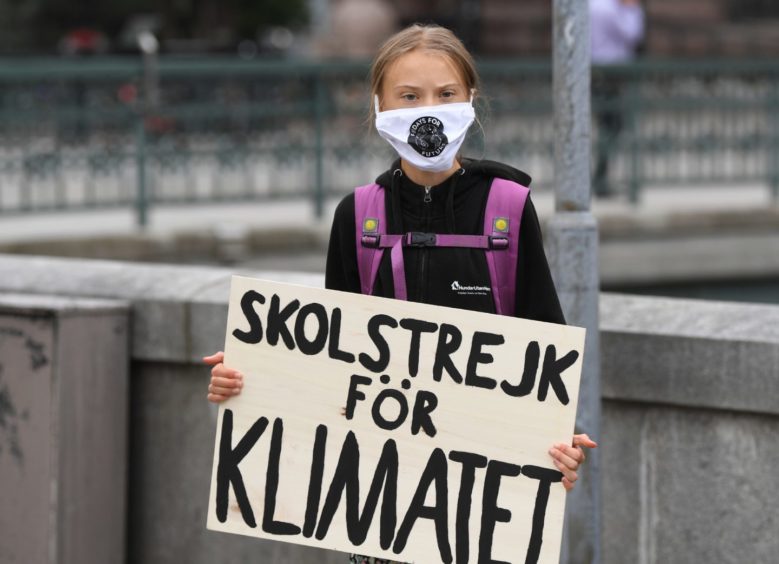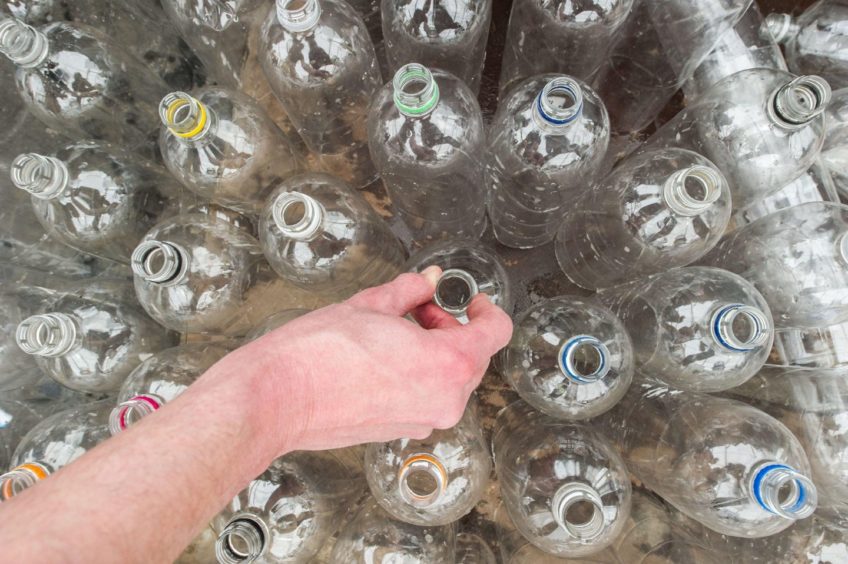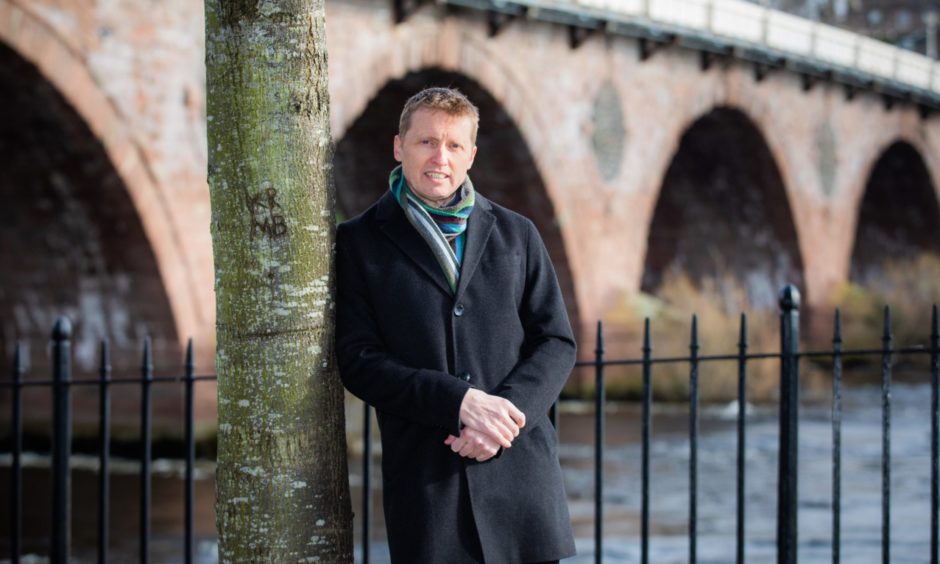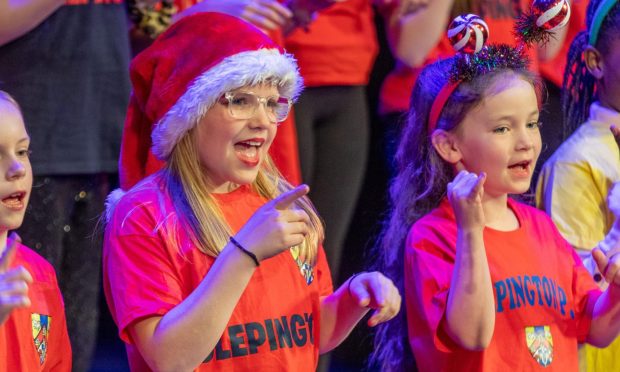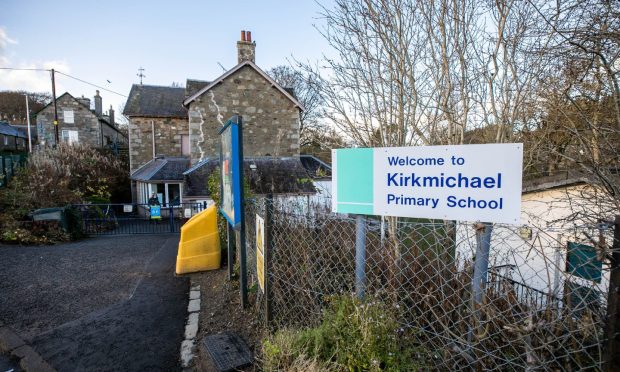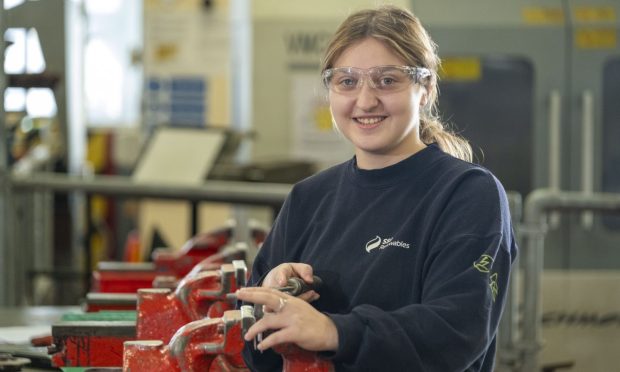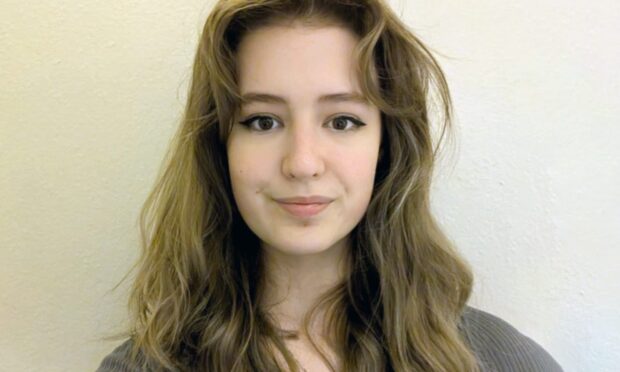Michael Alexander speaks to a teacher at the forefront of Chalk Talks – a Royal Scottish Geographical Society-led series that’s been providing free virtual geography lessons for secondary school pupils stuck at home during the coronavirus pandemic.
There’s an old saying that ‘War is God’s way of teaching us geography’.
But with the growing need to understand climate change, migration and sustainable development, geography is a subject that can teach us all about the fragility of the planet and how the world – and its people – fit together locally, regionally and globally.
There’s hardly been a more important time for young people, whatever their background, to become well-informed global citizens.
Now, following a year of challenge where most pupils have been learning at home for lengthy periods during the Covid pandemic lockdowns, and to supplement the efforts of hard-working teachers, the Perth-based Royal Scottish Geographical Society (RSGS) has rejuvenated its educational outreach programme by delivering a series of free virtual geography revision lessons for secondary pupils online.
What are Chalk Talks?
RSGS Chalk Talks is an ambitious project to create a series of online, informative videos and associated lesson plans, each addressing a geography module in Scotland’s National 5 and Higher courses.
Endorsed by the Scottish Association of Geography Teachers, and funded by donations to the RSGS ‘A Helping Hand for Schools’ campaign launched last year, each video summarises topics in the Scottish geography curriculum, from glaciers to coasts, cities to deserts, and everything in between.
Videos have been added as they are created, with the aim being to cover as many units as possible amid the dual challenge of catching up on lost learning whilst being prepared for any future face-to-face teaching limitations.
RSGS education committee chairman Alastair McConnell explained that the Chalk Talks project is a collaboration between independent school Dollar Academy – where he is head of geography – and RSGS.
While the geography teacher team at Dollar Academy has produced the Higher videos, some videos are also being recorded by teachers in other schools, with Alex Wylie at Morrison’s Academy putting together much of the National 5 content alongside Carl Philipps at Kilgraston.
“It was really RSGS chief executive Mike Robinson that came up with this as a project,” explains Alastair.
“He wanted to do something that would help parents, teachers and pupils at this time where there’s so much interruption to normal education. We sat down and had that discussion about what would be the best thing.
“That’s where we came up with this idea of a series of videos that weren’t just about geography topics in general but specifically covered the course content that we have in Higher and National 5 geography.
“It’s also targeted at helping pupils understand how they answer exam questions – something where it was maybe more difficult to get that support when they haven’t been getting face to face teaching.”
Collaboration
Thanking everyone who donated to make the production of the videos possible, Alastair said it had originally been the intention to produce the videos with inputs from teachers across many schools and for RSGS to send people out to film them.
With restrictions being what they are, however, this proved impossible meaning that his school, for example, had taken on the Higher unit filming themselves, collaborating with the RSGS and Dollar Discovers platform to put the videos together.
They were also mindful that with Dollar being an independent school and with pupils and staff there being “very privileged” compared to many, they wanted to have a positive impact on education across the country.
Alastair is keen to stress that while education has been disrupted during the pandemic, schools have remained open throughout the country for children of key workers and those classed as vulnerable.
Teachers have also been busy providing online and live lessons during lockdown.
The learning curve for staff and pupils has been “huge” with online learning techniques invaluable moving forward.
When asked if he is concerned about the possible long-term consequences of time out of school and potential growth of the attainment gap in Scottish education, he’s confident that from an educational perspective, pupils will be able to catch up.
However, his biggest concerns surround mental health, pupils developing relationships with their peers and even coming back into school if social distancing restrictions remain in place.
Impact on extra-curricular activities
“I run a curling club at school, for example, and quite when we are going to be able to get back to having the kids on the ice curling, I don’t know,” he says.
“I just wonder if it’s those kind of extra-curricular activities that are really going to suffer from this and that’s a big concern.
“I know in the 1980s when there were lots of schools teachers striking, one of the things that really did suffer was extra-curricular activities. Teachers were just teaching and refusing to do anything else.”
Alistair is also concerned about the loss of geography field trips. In the past year alone, seven field trips at Dollar had to be cancelled.
“The loss for the pupils of that is just huge – it’s such an integral part of their education,” he adds. “That ability to go away and see things you’ve never seen before, to experience cultures that you’ve never experienced before. We just haven’t been able to do it because of the restrictions.”
Inspired to become a geography teacher
Growing up in Forres, Morayshire, where he attended Forres Academy, Alastair says it was the enthusiasm of a school geography teacher that ignited his passion for the subject. He loves the way geography bridges science and the arts.
A student of geology and physical geography at Edinburgh University, many of his contemporaries went to work in the oil industry.
But it was the two years he spent teaching English at a Japanese high school after graduation that inspired him to pursue teaching – a career that made a positive difference and “just clicked”.
After completing teacher training at Strathclyde University in Glasgow, the now father of a seven-year-old girl, who lives in Alloa, taught in the Falkirk Council area for eight years and has now been at Dollar for 12 years where he’s head of geography.
Having been in his RSGS role for a year, Alastair says one of the most rewarding aspects has been coming across former pupils who’ve “gone on to great things” in geography.
By chance, an all-female editorial group that recently produced an RSGS Young Geographer magazine included two editors who were pupils of his a decade ago.
With its inter-disciplinary approach and ability to give an overview of how the world works, geography has hardly been more relevant with people turning to the subject to find out more about everything from climate change to plastic pollution.
But Alastair says he noticed a particular turning point around 18 months ago when the “Greta Thunberg generation” stepped up.
“There was a sudden click – a sudden change,” he says.
“There were pupils seeking you out as a geography teacher. Saying ‘I’m interested in this – can we do something on this in our school?’
“In that time we started a sustainability group in school. The engagement from the pupils has been incredible.
“Even when the schools have been teaching remotely, the pupils have been coming to me and saying ‘that club that we do at lunchtime, can we keep doing it because there are issues we think are just as important now during Covid as they were before’?
“It’s all things like the amount of energy we are using and how that’s changed, the waste produced from PPE. All of these things are so clear in peoples’ minds – and they want to do stuff. We’ve been taking kids out doing litter picks, doing tree planting in the local area.
“It’s not like I’m having to go out and push it to say I need volunteers to do this job.
“We are so oversubscribed with kids wanting to go out and just do something that makes them feel they are doing something practical to help, and things like litter picks and tree planting is something that’s a win win for everyone really.”
Challenge to geography in schools?
Geography as a subject in schools does still face challenges, however.
Alastair says the narrowing of the curriculum in Scottish education in recent years as a “direct consequence” of Curriculum for Excellence does put geography at a disadvantage as it can be “squeezed out”.
Geography can also be “pigeon holed” into the social subjects when to some extent it has more in common with the sciences.
Another concern he has is the faculty system now running in a lot of state schools.
One of the reasons he was attracted to Dollar is that there’s still a head of geography position.
“Certainly in Falkirk Council and most councils, you now have faculty heads who are in charge of six, seven, eight different subjects and therefore don’t necessarily have the subject specialism in those subjects,” he says.
However, he hopes more pupils will continue seeing the subject as a way of engaging with some of the greatest challenges the planet faces.
Fantastic job
RSGS chief executive Mike Robinson says Alastair has done a “fantastic job” of getting the free online schools talks together despite all the various obstacles from Covid and a heavy workload.
“I am really grateful to him and the many members of the RSGS and the public who donated to our appeal before Christmas to help pupils and teachers by creating these lessons,” he says.
“Throughout the pandemic RSGS has taken the approach of doing everything we can to support people through this difficult time.
“Along with the online lessons, we have produced extra magazines, monthly quizzes and Zoom coffee mornings, and weekly on line talks with a wide array of speakers, which have regularly been getting audiences of over 400 households.
“People have really responded to our positive approach, and it feels like it has really struck a nerve, as so many people want to help where they can.
“Alongside donations to help us produce the filmed Chalk Talks, we received many offers of help from teachers offering to lend a hand.
“Working hand in hand with Dollar Academy, we have now completed most of the Higher Geography course and are working our way through the National 5.
“All are free to view on Youtube under RSGS chalk talks.”
To access the Chalk Talks go to rsgs.org/chalk-talks
